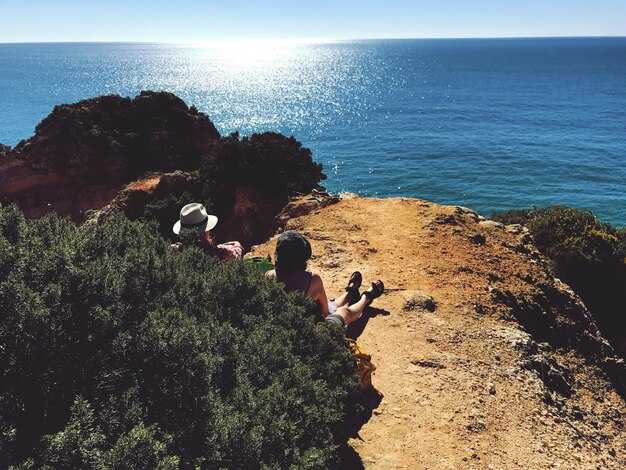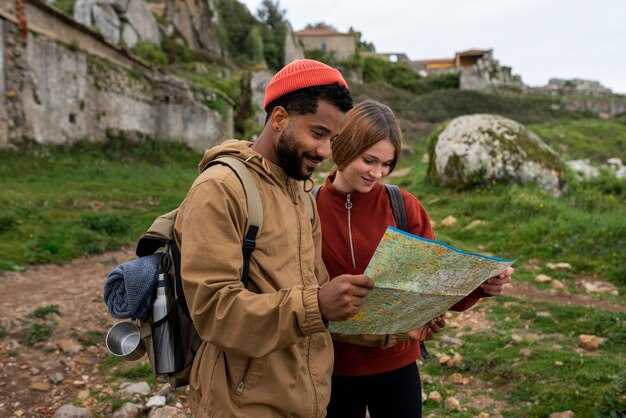Reserve your Basque Country trip using privado services and reservar early to lock in the best experiences. Local providers ofrecen soluciones tailored to your pace, with a dedicated ejecutivo ready to assist. Plan the duración of your visit to align morning markets with evening tapas and ensure alta comfort and flexibility for all ages.
The Basque Country Autonomous Community spans a diverse coastline and a gran interior, where pequeño towns blend with vibrant cities. You’ll find a mix of architecture, gastronomy, and culture in Bilbao, San Sebastián, and Guipúzcoa’s rural valleys. The utilización of public transit, cycling routes, and a growing vehículo network makes day trips seamless, with disponibles guided tours and private visits.
To optimize time, start your búsqueda with clear priorities and a flexible plan. You encontrarás a broad range of accommodations, from pequeño inns to gran hotels, with disponibles rooms updated daily. A mano-on approach helps tailor activities, and choosing a vehículo with reliable insurance and driver options adds freedom when exploring the coast and countryside. For privacy or specialized interests, request ιδιωτικός tours and concise itineraries.
Administratively, the secretario και το ejecutivo coordinate cultural programs and public services that back responsible travel. This guide points you toward trustworthy providers, highlighting gran transparency, fixed pricing, and clear cancellation terms. Use official portals to verify licenses, then compare with private operators to find soluciones that fit your schedule and budget.
For the final step, reserve a plan that aligns with your interests, and you will discover a balanced mix of food, architecture, and nature. The Basque Country invites visitors who plan thoughtfully, search diligently, and leverage local expertise. By combining búsqueda, direct contacts, and a practical utilización of transport and time, you’ll enjoy a high-quality stay with encontrarás options that match every preference.
How Basque Country Autonomy Works: Key Institutions, Powers, and Regional Identity
Start your dónde search for Basque autonomy by visiting the official Euskadi sites. In the búsqueda you will find the Estatuto de Autonomía and the Concierto Económico, which define powers and the salida of funds from Madrid to the Basque Autonomous Community. Look for diagrams that distinguish exclusive, shared, and residual competencies, and use the cupo mechanism to understand funding flows. When you encontrar these documents, you will see how responsibilities are distributed across regional bodies and municipalities.
Institutions matter: Eusko Legebiltzarra (Basque Parliament) seats 75 members and sits in Vitoria-Gasteiz; the Lehendakari heads the Gobierno Vasco and directs policy. The Foral Diputaciones of Bizkaia, Gipuzkoa, and Álava supervise provincial administration and coordinate with ciudades and municipalities. Civil society organizations participate in consultations, ensuring inputs from citizens are considered.
Powers and funding frameworks: The autonomous framework covers education, health, social services, urban planning, housing, transport, communications, and much of cultural policy, including Euskara. It defines escala for policy delivery and how to partir responsibilities across local, provincial, and regional layers. The Concierto Económico guides fiscal relations, determining cupo transfers and Basque autonomy in taxation; public works (obra) and services are delivered through both the public sector and partnerships with private actors (privadas).
Regional identity: Euskara is co-official with Spanish, and language policy is integrated into schools and public services. Euskadi celebrates its regional identity in ciudades such as Bilbao, Donostia (San Sebastián), and Vitoria-Gasteiz, with este emphasis on language and culture strengthening nuestros belonging within the broader país. Local communities and cultural programs foster mugi networks that connect urban centers and rural towns while preserving tradiciones and shared values.
Practical takeaways: To find reliable data, use official portals from the Basque Government and Eusko Legebiltzarra. dónde to look for updates, and explore how transport and urban planning plans promote sostenible mobility with bicicletas and alternatives to vehículos privados. Allocate espacio in city centers for pedestrian zones and avenida corridors, plan for alquiler and obra projects, and rely on clear comunicaciónes to keep residents informed. The conductor of policy invites input from civil society and aceptan ideas from nuestros stakeholders. For researchers or visitors, workinspace options in towns support local innovation while maintaining alta quality of services and accessibility.
Travel and Transport to San Sebastián: Airports, Rail, and City Navigation
Fly into Hondarribia/Donostia Airport (EAS) and reach San Sebastián city center in about 25–30 minutes by taxi; alquiler desks are equipados in arrivals, and gratuitos city maps are available at the information desks. If you need local guidance, maria from the prensa desk can point you to oportunidades compartidas and servicios for este viaje. Nuestro lema es impulsar la movilidad con sanidad y accesibilidad para nuestras personas.
As alternatives to EAS, Bilbao BIO (around 100–110 km) and Biarritz BIQ (around 50–60 km) connect well to Donostia by rail or coach. Expect 1.5–2 hours door-to-door from landing to central San Sebastián, depending on schedules and connections. From these hubs, use the rail and bus services to explore las oportunidades de comercio y turismo de la Costa Vasca; la utilización de estas rutas facilita oportunidades compartidas para visitantes y residentes.
The rail network centers on Donostia-San Sebastián Station, with Euskotren and Renfe services to Bilbao, Zarautz, and Hendaye. Typical Euskotren trips take around 60 minutes to Bilbao Abando and 40–50 minutes to Hendaye. Renfe long-distance trains connect to Madrid and Barcelona via transfers; buy tickets in advance and be ready for an inspector on board. These servicios strengthen la utilización of travel between the coast and the inland Gipuzkoa.
City navigation: San Sebastián is compact and walkable, with a modern DBus network. You can use the Barik card for easy pago or buy single tickets. Buses serve the distrito Centro, Gros, Amara, and Antiguo. The servicios are signposted, and if you need help, ask a local asesor for guidance. puedes encontrar mapas y horarios en las paradas; puedes realizar viajes cortos a La Concha, Ondarreta, y Zurriola, and move between barrios with este transporte for a gran paseo along la bahía.
Regus Avenida Libertad 17 San Sebastián: Workspace Options, Facilities, and Booking Process
Recommendation: book a flexible workinspace hot desk for a 7 días trial to test the entorno, collaboration potential, and professional imagen, then scale up with a private office if you need more control and privacy.
Workspace Options
- Hot desk in the workinspace area with flexible occupancy, available in días bundles or monthly terms, and ofertas that help alquilar space quickly.
- Dedicated desk with personal storage and ergonomic mueble for steady routines, with duration options including daily, semanal, or monthly.
- Private offices for 1–4 people, offering secure access, natural light, and a professional entorno for client meetings.
- Salas de reuniones (meeting rooms) with AV gear and videoconferencing, ideal for presentations, training, and ferias or networking events.
Facilities, Services, and Booking Process

- High-speed internet, secure access, and quiet zones to maintain a strong imagen for your business.
- Administrative (administrativo) support and asesor/asesora on demand for planning, invoicing, and day-to-day tasks; jurídico guidance available if needed.
- Collaboration with referenciados and a civil, professional environment designed for cross‑industry solutions (soluciones) and partnerships.
- On-site amenities, including reliable mueble, reception services, and alimentarias options via partner providers; regular feria events for networking.
- Onboarding uses a mugi template to tailor the plan for cada cliente, ensuring a smooth setup and clear action steps.
- Βήματα κράτησης:
- Review ofertas and select the workspace option that matches your duración and days (días).
- Connect with an asesor or asesora to understand condiciones, comisiones, and required documents (referenciados, administrativo).
- Confirm the space type, duration, and any additional services (salas, equipment).
- Receive confirmation, access details, and guidelines to realizar the setup efficiently.
Cost of Living, Housing, and Local Infrastructure in the Basque Country
Recommendation: Plan a monthly budget by center versus suburbs. In San Sebastián, a 1-bedroom in the city center runs about 1,300–1,800 EUR; Bilbao center about 1,000–1,400 EUR; oiartzun about 800–1,200 EUR. Outside centers, rents typically fall to 700–1,000 EUR. Utilities run 100–150 EUR, internet 25–40 EUR, and a monthly transport pass 50–60 EUR. A realistic total for a single person is roughly 1,800–2,350 EUR in city cores, or 1,200–1,800 EUR in towns like oiartzun and other pueblos. These totals incluyen utilities, internet, and transport. Consúltenos to tailor this plan for negocios or oficinas privadas, and to align valor with entre and escala considerations across San Sebastián and the Basque coast, reinforcing ciudadanía and imagen through high-quality service. Note: some programas gratuitos (gratuitos) exist for youth or seniors, improving the region’s imagen and its lema of quality of life.
Housing and Neighborhoods
Neighborhood choice drives value. Central districts in San Sebastián and Bilbao offer rapid access to comercio, schools, healthcare, and cultural amenities, but command higher rents. In oiartzun and other pueblos, you gain space, quieter streets, and lower costs. Many pisos are privadas and can be rented furnished or semi-furnished; ask for buenos contratos and clear comunidad charges to avoid surprises. For those planning to realizar negocios or establish oficinas privadas, look for locations that support servicio on site and easy connections to transit. The total cost also reflects horizontal governance in building management, which affects valor over time. The imagen and lema of the Basque Country promote a high quality of life and proximity to nature, appealing to ciudadanÍa seeking balance between urban amenities and environment. When assessing options between entre urban cores and rural towns, scale (escala) your plan to align with long-term growth and service access.
Infrastructure and Public Services

Local infrastructure remains strong, with major investments in roads, rail, and ports. The Basque Government coordinates with municipal councils to deliver servicio such as regional buses, Euskotren lines, and tram extensions where available; an inspector ensures safety and compliance on works, while conductors operate reliable urban transport. In San Sebastián, Bilbao, and nearby pueblos, civil standards are high and private empresas privadas often contribute to maintenance and improvements. The imagen of the region emphasizes efficiency, safety, and civic participation, supporting ciudadanía as populations shift between centre and pueblo settings. Some services offer gratuitos for eligible groups; consúltenos to verify eligibility and plan visits to cultural sites, libraries, and public spaces that enrich daily life.
Business Etiquette, Language, and Local Festivities in the Basque Country
Start with iniciativa: learn Basque greetings, grasp Spanish etiquette, and adapt your start-up plan to the Gipuzkoa entorno, aiming for velocidad in scheduling and clarity in proposals. Connect with a local agencia to coordinate meetings with profesionales and administrativo staff; present a concise case with clear next steps. If your team includes universitario personnel, invite partners to observe fabricación processes to inform product decisions and supplier options, including bolivar-branded options for office mueble. During initial visits, extend a firm mano handshake and maintain eye contact to show respect, and keep conversations focused on concrete outcomes.
Language and Communication in the Basque Country
In the Basque Country, Basque (Euskara) and Spanish coexist; in Gipuzkoa, Basque is increasingly present in municipal offices and meetings. Arrive with a short Basque greeting to signal respeto, but be ready to switch to Spanish if needed. When addressing personas and profesionales, use a polite, direct tone and keep messages concise. Provide bilingual cards or emails; for universitario staff and familias, attach simple summaries of proposals and timelines. In administrative conversations, present data clearly and avoid jargon; during walking meetings around a showroom or fabricación facilities, use a mano handshake and a horizontal workflow to speed connections and reduce friction. If you travel with a supplier from bolivar or similar brands, request referencias and delivery timelines to support decisions. This approach helps encontrarás alignment quickly and establishes trust across the entorno.
Local Festivities and Business Interactions
Local fiestas shape calendars in Gipuzkoa and across the Basque Country. Aste Nagusia in San Sebastián and Semana Grande in Bilbao affect transportes and meeting availability, so schedule with buffers. After festival days, hosting informal sessions around pintxos can help you meet personas and familias in a natural setting, while respecting local customs. When presenting a piloto or demonstration, coordinate with fabricantes and mueble suppliers to show a practical proof of concept; keep the agenda lean and timeboxed. Use walking routes through business clusters to meet profesionales and universitario staff; partner with una agencia to arrange introductions, and propose a horizontal collaboration model that makes it easy for equipos to partir into next steps. If you’re targeting administrative offices, send a concise follow-up email that reiterates key outcomes and a timeline for entrega.



Σχόλια